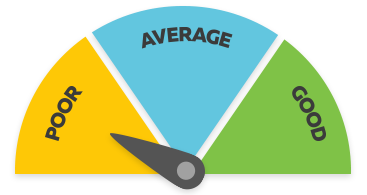Judge
Kaiwhakawā
Alternative titles for this job
Judges listen to court cases and make decisions on matters of law.
Pay
Judges usually earn
$370K-$578K per year
Source: Parliamentary Counsel Office, 2023.
Job opportunities
Pay
Pay for judges varies depending on the court they work in and how senior they are. Judges have tenure (a fixed wage that cannot be decreased) to ensure they remain impartial.
Judges usually earn $370,000 to $578,000 a year.
Judges also receive an allowance for general expenses as part of their salary.
Source: Parliamentary Counsel Office, 'Judicial Officers Salaries and Allowances (2022/23) Determination 2022', 2023.
(This information is a guide only. Find out more about the sources of our pay information)
What you will do
Judges may do some or all of the following:
- enforce the rules during court cases
- listen to the evidence of witnesses and the arguments of lawyers
- make rulings on what evidence may be used
- guide juries on the law
- come to decisions on legal cases or receive the decisions of juries
- pass sentence on people who are convicted
- write decisions on court cases
- sit on tribunals to help solve disputes
- decide custody and access disputes.
Skills and knowledge
Judges need to have knowledge of:
- New Zealand law and legal history
- how the court system operates
- other judges' decisions
- possible culture, gender and society issues that may affect court hearings
- management and leadership skills, so they can keep order in the court.
Working conditions
Judges:
- usually work regular business hours
- work in offices and courts
- may travel between courthouses in a region to hear cases.
Entry requirements
To become a judge you need to:
- hold a Bachelor of Laws (LLB) and have completed a Professional Legal Studies course
- have at least seven years' experience as a solicitor and/or barrister
- be of good character
- have a good knowledge of the law and what justice means in present-day New Zealand.
Most judges are chosen from partners and directors of law firms or Queen's Counsels.
People wishing to become judges need to apply or be nominated to the Attorney-General's Judicial Appointments Unit.
Secondary education
A tertiary entrance qualification is required to enter further training. Useful subjects include English, history and classical studies, te reo Māori and social studies.
Personal requirements
Judges need to be:
- mature and responsible
- honest and fair
- accepting of public scrutiny
- trustworthy
- able to interpret and analyse information.
Judges are screened before they are appointed for things such as integrity, character and honesty. A sense of fairness and respect is also very important.

(A'e'au) Semi Epati
District Court Judge
Useful experience
Useful experience for judges includes:
- work as a barrister and/or solicitor
- legal advisory work
- work for the Ministry of Justice
- work at parliament drafting new laws.
Find out more about training
- Te Kura Kaiwhakawā/Institute of Judicial Studies
- (04) 496 3955 - TeKura@justice.govt.nz - www.ijs.govt.nz
Check out related courses
What are the chances of getting a job?
Strong competition for judge positions
Competition for judge positions is high because:
- the occupation is small
- people tend to stay in the role for a long time
- the role of judge is highly respected and sought after by lawyers.
According to the Census, 357 judges worked in New Zealand in 2018.
One employer of judges
The Ministry of Justice is the only employer of judges in New Zealand.
Sources
- Courts of New Zealand, 'Appointments', 2017, (www.courtsofnz.govt.nz).
- New Zealand Legislation, ‘Judicial Officers Salaries and Allowances (2020/21) Determination 2020’, 22 September 2020, (www.legislation.govt.nz).
- New Zealand Bar Association, 'High Court Annual Review 2016', 2016, (www.nzbar.org.nz).
- New Zealand Law Society, 'Artificial Intelligence and the Law', 20 January 2017, (www.lawsociety.org.nz).
- New Zealand Law Society, 'New Zealand Judiciary', 22 June 2017, (www.lawsociety.org.nz).
- Stats NZ, '2018 Census Data', 2019.
(This information is a guide only. Find out more about the sources of our job opportunities information)
Progression and specialisations
Judges may progress from District Court judge to positions in higher courts such as the High Court, Court of Appeal and Supreme Court.
Judges may also progress to impartial positions within government such as Governor-General.
Last updated 13 March 2023


